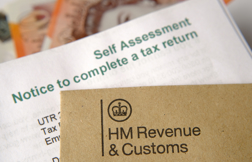With buy-to-let properties being seen as a sound investment, more people are taking their first step into the growing landlord market. PayStream act on behalf of many landlords, from those who own a single let property to those with extensive property development and letting portfolios.
In this guide, we share with you some of the more frequently asked questions and issues posed by prospective and new landlords.
If you are looking to become a landlord for the first time or are thinking of expanding your existing portfolio, remember that the tax consequence of investing in property is unlikely to be the main driver for your decision but it should still inform that decision.
Do your own research into the rules around the taxation of property and don’t be afraid to take the advice of professionals. Buying property is a major financial commitment and it will pay you to understand how the tax rules work to avoid making a costly mistake.








